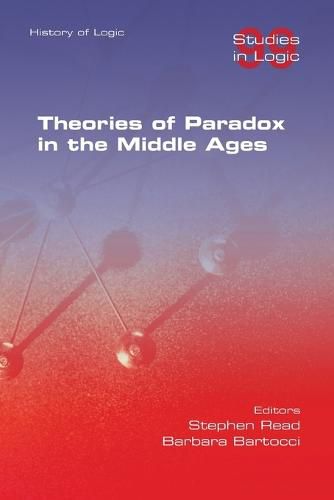Readings Newsletter
Become a Readings Member to make your shopping experience even easier.
Sign in or sign up for free!
You’re not far away from qualifying for FREE standard shipping within Australia
You’ve qualified for FREE standard shipping within Australia
The cart is loading…






This title is printed to order. This book may have been self-published. If so, we cannot guarantee the quality of the content. In the main most books will have gone through the editing process however some may not. We therefore suggest that you be aware of this before ordering this book. If in doubt check either the author or publisher’s details as we are unable to accept any returns unless they are faulty. Please contact us if you have any questions.
Paradoxes seized the attention of logicians in the middle ages, and were used both as tests for the viability of theories of logic, language, epistemology, and possibly every philosophical issue, and also in the specific genre of insolubles as needing a theoretical solution, usually involving issues about signification, truth, knowledge and modality. Numerous theories were developed, not only in the Latin West, but also in the Islamic world and in the Byzantine tradition. Some of these theories are well known, others barely investigated, if at all. The papers in this volume discuss and contrast a range of these theories and consider their advantages and drawbacks, and their relation to more recent theories of paradox and antinomy. Several of the papers were presented at a workshop organised at the University of St Andrews, Scotland, as part of the Leverhulme-funded project 'Theories of Paradox in Fourteenth-Century Logic: Edition and Translation of Key Texts'.
$9.00 standard shipping within Australia
FREE standard shipping within Australia for orders over $100.00
Express & International shipping calculated at checkout
This title is printed to order. This book may have been self-published. If so, we cannot guarantee the quality of the content. In the main most books will have gone through the editing process however some may not. We therefore suggest that you be aware of this before ordering this book. If in doubt check either the author or publisher’s details as we are unable to accept any returns unless they are faulty. Please contact us if you have any questions.
Paradoxes seized the attention of logicians in the middle ages, and were used both as tests for the viability of theories of logic, language, epistemology, and possibly every philosophical issue, and also in the specific genre of insolubles as needing a theoretical solution, usually involving issues about signification, truth, knowledge and modality. Numerous theories were developed, not only in the Latin West, but also in the Islamic world and in the Byzantine tradition. Some of these theories are well known, others barely investigated, if at all. The papers in this volume discuss and contrast a range of these theories and consider their advantages and drawbacks, and their relation to more recent theories of paradox and antinomy. Several of the papers were presented at a workshop organised at the University of St Andrews, Scotland, as part of the Leverhulme-funded project 'Theories of Paradox in Fourteenth-Century Logic: Edition and Translation of Key Texts'.